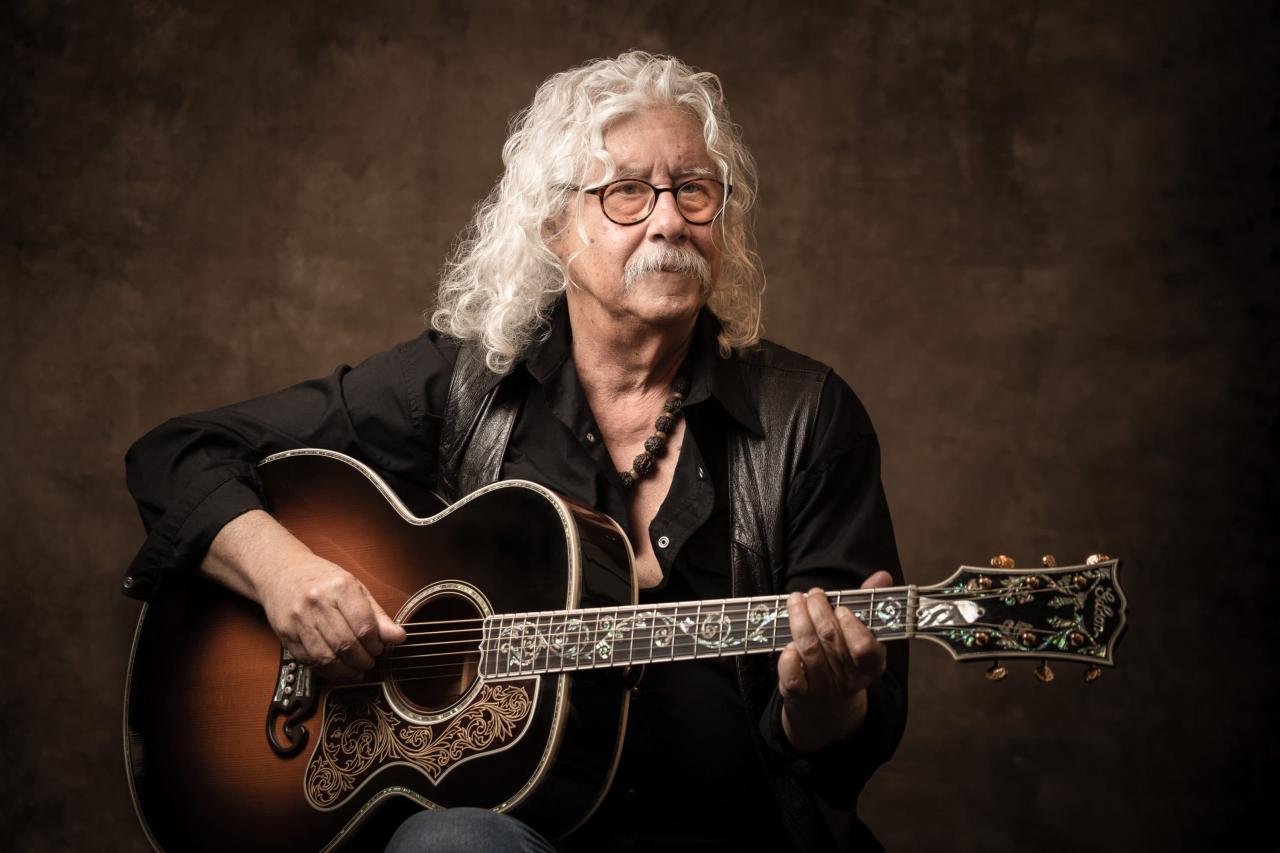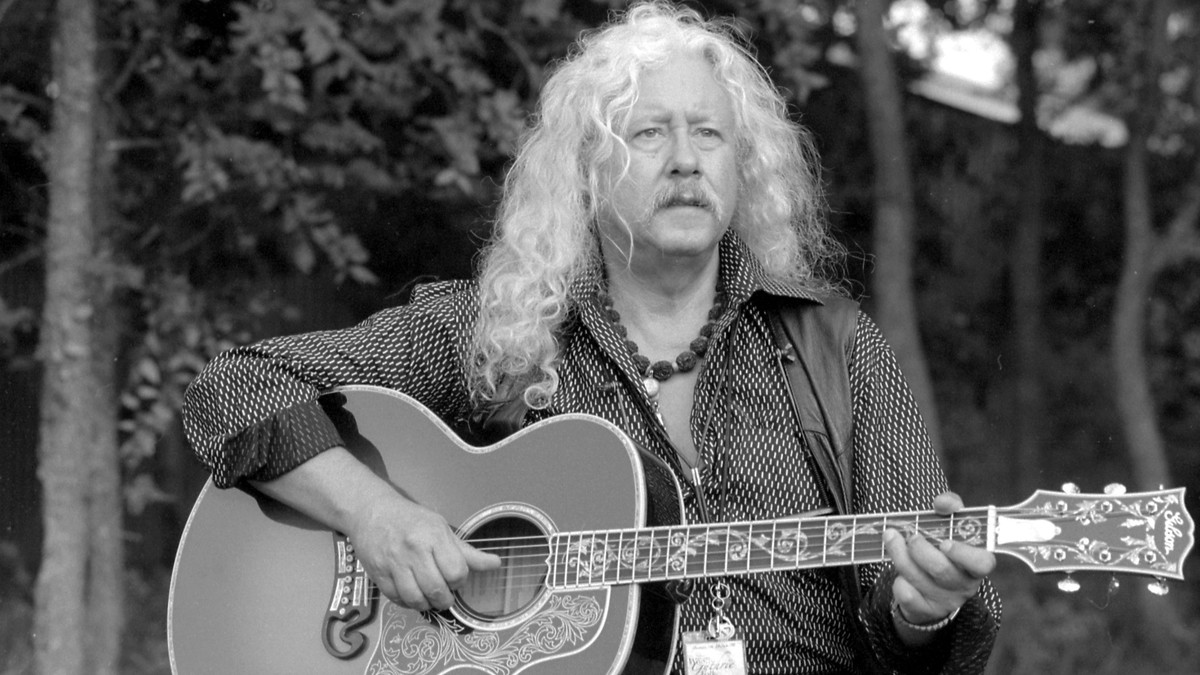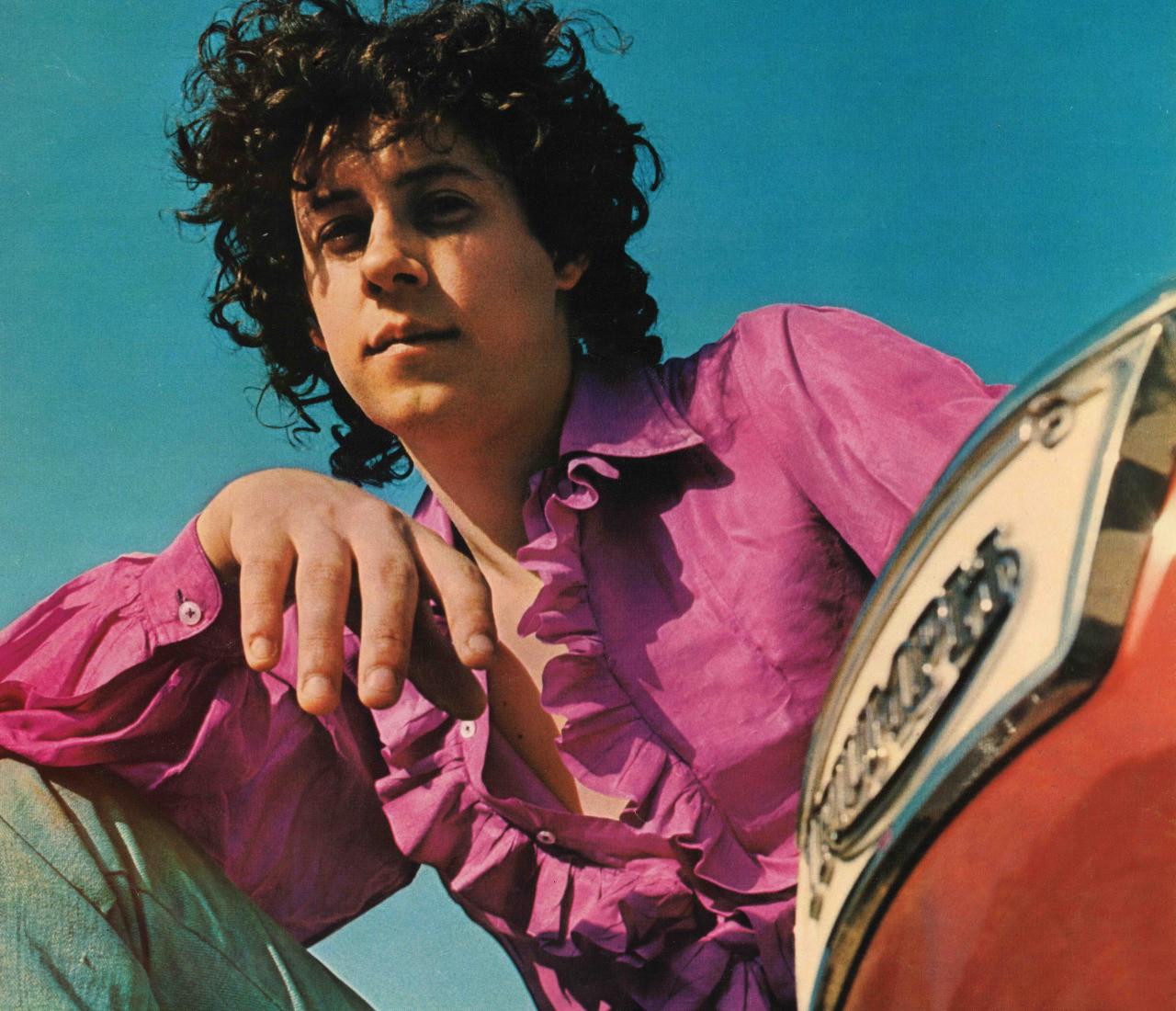Arlo Guthrie, the legendary folk singer, songwriter, and activist, has left an enduring mark on the world of music and social change. His iconic songs, unwavering activism, and commitment to justice continue to inspire and resonate with audiences.
Born into a musical family, Guthrie’s journey began in the vibrant folk scene of the 1960s. His breakthrough album, “Alice’s Restaurant,” became an instant classic, featuring his witty storytelling and sharp social commentary.
Personal Background
Arlo Guthrie was born on July 10, 1947, in Brooklyn, New York City. He is the son of renowned folk singer Woody Guthrie and Marjorie Mazia Guthrie. Arlo’s early life was shaped by his father’s music and activism, which instilled in him a deep appreciation for folk music and social justice.
Arlo spent his childhood in a bohemian environment, surrounded by folk musicians and artists. He began playing the guitar at a young age and was heavily influenced by his father’s music and the folk revival movement of the 1960s.
Influences
Arlo Guthrie’s musical style was shaped by a diverse range of influences, including folk, blues, and country music. He was particularly inspired by the works of Bob Dylan, Pete Seeger, and Lead Belly. Guthrie’s lyrics often reflect his political and social activism, addressing issues such as war, poverty, and environmentalism.
Musical Career: Arlo Guthrie
Arlo Guthrie’s musical journey began at a young age, influenced by his father, legendary folk singer Woody Guthrie. Arlo’s early performances showcased his raw talent and unique storytelling abilities. His breakthrough album, “Alice’s Restaurant Massacree,” released in 1967, propelled him to fame and established him as a prominent voice in the folk music scene.Throughout his career, Guthrie has released over 20 studio albums, each infused with his signature blend of humor, social commentary, and poignant storytelling.
His songs often explore themes of peace, social justice, and the human experience, resonating deeply with audiences worldwide.
Key Themes and Messages
Guthrie’s music is characterized by its strong social and political messages. He has been an outspoken advocate for peace, environmentalism, and human rights. Through his songs, he challenges authority, exposes injustice, and encourages listeners to question the status quo.His iconic song, “Alice’s Restaurant Massacree,” is a satirical masterpiece that humorously recounts his arrest for littering.
The song became an anthem of the anti-Vietnam War movement, capturing the absurdity and hypocrisy of the conflict.Another notable song, “City of New Orleans,” celebrates the romance and nostalgia of train travel while highlighting the struggles of the working class.
Guthrie’s evocative lyrics and heartfelt delivery make this song a timeless classic.
Impact on Folk Music
Arlo Guthrie has played a significant role in shaping the landscape of folk music. His innovative approach to songwriting and his ability to connect with audiences on a personal level have inspired generations of musicians. His songs have become staples of the folk repertoire, covered by countless artists and beloved by fans worldwide.Guthrie’s influence extends beyond his music.
He has been a vocal advocate for folk music and its role in society. He has founded the Guthrie Center, a non-profit organization dedicated to preserving and promoting folk music and its rich cultural heritage.
Activism and Social Commentary
Arlo Guthrie has been a lifelong activist and social commentator, using his music and platform to raise awareness and promote change on various social and political issues.
One of the most notable causes Guthrie has supported is the anti-war movement. He is best known for his iconic protest song “Alice’s Restaurant Massacree,” which satirizes the Vietnam War and the military-industrial complex. Guthrie has also been involved in other anti-war efforts, including organizing protests and performing at rallies.
Environmental Activism
Guthrie is also a passionate environmental activist. He has been involved in efforts to protect the environment, including advocating for clean energy, conservation, and sustainable practices. Guthrie has also used his music to raise awareness about environmental issues, such as in his song “City of New Orleans,” which laments the destruction of the environment by industrialization.
Human Rights Activism
Guthrie has also been an advocate for human rights, particularly for indigenous peoples. He has supported the rights of Native Americans and other indigenous communities, and has used his music to raise awareness about their struggles.
Guthrie’s activism has had a significant impact on his music and legacy. His protest songs have become anthems for social movements, and his commitment to social justice has inspired many others to get involved in activism. Guthrie’s activism has also helped to shape his image as a folk hero and a voice for the voiceless.
Legacy and Influence
Arlo Guthrie’s enduring legacy lies in his profound contributions to the folk music genre, activism, and social commentary. His music, activism, and unwavering commitment to social justice continue to inspire generations of musicians, activists, and individuals alike.
Guthrie’s music played a pivotal role in shaping the folk music landscape of the 1960s and beyond. His iconic anthem, “Alice’s Restaurant Massacree,” became a countercultural anthem, capturing the essence of the era’s social and political unrest. His witty, poignant, and often humorous songs resonated with audiences, offering a unique blend of storytelling and social commentary.
Contributions to Folk Music
- Preservation of traditional folk songs: Guthrie played a crucial role in preserving and popularizing traditional folk songs, introducing them to a wider audience through his performances and recordings.
- Innovative songwriting: Guthrie’s songwriting style was characterized by its humor, wit, and keen observations of everyday life. His songs often tackled complex social issues with a unique blend of satire and empathy.
- Expansion of the folk genre: Guthrie’s music transcended traditional folk boundaries, incorporating elements of blues, rock, and country. His eclectic approach helped expand the scope of the genre and attract a broader fan base.
Influence on Subsequent Generations, Arlo guthrie
Guthrie’s music and activism have had a profound influence on subsequent generations of musicians and activists. His commitment to social justice, environmental protection, and peace inspired countless individuals to use their voices for change.
- Musical influence: Guthrie’s songwriting and storytelling techniques have influenced a wide range of musicians, including Bob Dylan, Bruce Springsteen, and John Prine.
- Activism and social commentary: Guthrie’s activism and outspoken nature encouraged others to speak out against injustice and work towards a more equitable society.
- Preservation of folk heritage: Guthrie’s efforts to preserve and popularize traditional folk songs helped ensure the survival of this important musical tradition.
Ultimate Conclusion
Throughout his career, Guthrie’s activism extended beyond music. He became a vocal advocate for environmental protection, peace, and civil rights. His unwavering commitment to social justice earned him widespread respect and admiration.
Arlo Guthrie’s legacy as a folk icon, activist, and musical pioneer is undeniable. His songs and activism continue to inspire and challenge audiences, leaving a lasting impact on the world.
Question & Answer Hub
What is Arlo Guthrie’s most famous song?
Alice’s Restaurant
What social causes did Arlo Guthrie support?
Environmental protection, peace, civil rights
What was Arlo Guthrie’s father’s name?
Woody Guthrie


